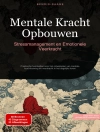Psychology has focused more on personalities in poverty — pathologizing — than on contexts for poverty reduction (Pick & Sirkin, 2010). As a result, the discipline has inadvertently sequestered and isolated itself, and its potential contribution, from poverty reduction initiatives – globally and locally. In recent years, there have been major developments in both the scope and depth of psychological research on global development issues. Some of the key developments include significant advances in understanding of what motivates teachers in schools, on designing community interventions to promote health, and on managing the development of human “capacity” in aid and development projects. The Psychology of Poverty Reduction is poised to capture such advances in the understanding of ‘what works’ – and what does not.
Spis treści
Part I: Levels.- Personality.- Organizations.- Part II: Community.- Markets.- Media.- Part III: Nexus.- Aid.- Mobility.- Systems.
O autorze
Stuart Carr is known for applying organisational psychology, with inter-related disciplines, to poverty reduction. His research ‘breaks through’ into world-class applied journals, the OECD’s “Policy Insights” and UNESCO’s “Higher Education Policy.” His books include Psychology of aid, Psychology and the developing world, Globalization and culture at work, Poverty and psychology, The Aid triangle, and The Psychology of Global Mobility. He contributed the chapter on Psychology applied to poverty in the International Association of Applied Psychology’s “Handbook of Applied Psychology.” His recent international grant awards include leading Project ADDUP, which researched dual salary systems in aid and was funded by the UK’s Department for International Development (now UK Aid) and the Economic and Social Research Council (ESRC). Stuart convenes a Global Task Force on Humanitarian Work Psychology, a White Papers Policy series for his profession globally, and the first Global Special Issue on Psychology and Poverty Reduction, involving twelve major international journals. He also co-edits the Journal of Pacific Rim Psychology, which focuses on development issues, and is Associate Editor for the Journal of Managerial Psychology, which has a focus on social innovation and change.












